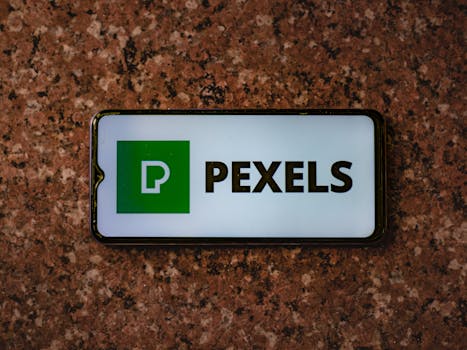Being a freelancer can feel like sailing solo. Many talented professionals struggle with visibility despite having real skills to offer. Getting noticed isn’t luck—it’s often a matter of smart, consistent marketing.
Marketing matters beyond large companies; for freelancers, it separates those who thrive from those stuck in feast-or-famine cycles. Standing out means more than just setting up a profile—it’s about telling your story and consistently reaching the right people.
If you’ve wondered why some freelancers seem to have work lined up while others don’t, this guide dives deep. Discover how purposeful marketing can turn your independent career into a lasting venture.
Crafting Your Unique Brand Identity
Marketing is about shaping how clients see you. A unique brand identity helps people remember you and trust your abilities, which leads to more opportunities.
Think of your brand as your digital handshake—just like the impression you make on someone you meet at a coffee shop, your online presence must feel authentic and welcoming.
- Consistent visuals, such as color palettes and logos, reinforce recognition and professionalism for potential clients.
- Clear messaging focused on solutions shows prospects how you make their lives easier, not just what you do.
- Regular content updates signal you’re active and reliable, not a ghost profile that may be outdated.
- Sharing client testimonials builds social proof, easing doubts for new contacts considering your services.
- Personal touches, like a quirky fact or story, make you memorable among many similar freelancers.
- Strategic use of platforms where your ideal clients browse dramatically increases your chances of being found.
By combining these elements, freelancers communicate trustworthiness. It’s like choosing between generic and handmade products—distinct branding tends to win hearts and repeat business.
Effectively Reaching Target Audiences
Freelancer success often hinges on finding the right people. Sarah, a copywriter, struggled with random gig boards until she identified local businesses needing website updates. Focusing on her true audience tripled her leads.
Meanwhile, Joe relied solely on referral platforms. He often felt invisible. Once he started networking at trade events and on LinkedIn, his connections and confidence grew quickly.
These varied experiences show that identifying where your target clients spend time is crucial. It’s not about being everywhere—it’s about being in the right places and adapting your message for those communities.
In short, look for overlap between your strengths and where your target market hangs out online or offline. Meet them there, and meaningful conversations—and projects—follow more naturally.
Strategies for Consistent Marketing Habits
Developing good marketing routines creates steady momentum. Without planning, it’s easy to fall into the trap of only marketing when business is slow, missing out on ongoing opportunities.
- Block dedicated time each week for marketing. Treat it like client work to ensure consistency and accountability.
- Create reusable content templates or outlines to post regularly, saving time while maintaining quality and presence.
- Automate repetitive tasks with scheduling tools, so you engage even when busy with other work.
- Participate in relevant online groups and forums. Answering questions builds authority and helps others remember your expertise.
- Analyze which posts or outreach methods get the best responses. Double down on what works, and drop tactics that don’t yield enough results.
- Set monthly goals, not just yearly ones. Short deadlines keep motivation high, letting you course-correct and celebrate wins quickly.
- Balance online efforts with offline networking, such as local meetups or coworking spaces. In-person impressions often become long-term relationships.
Sticking to these strategies ensures your marketing isn’t sporadic. Instead, you build a rhythm that steadily grows visibility, confidence, and bookings.
Comparing Marketing Approaches for Freelancers
Freelancers often toggle between self-promotion, word-of-mouth, and digital advertising. Each approach brings its own set of advantages and tradeoffs to consider before committing resources.
Picture two paths: One freelancer blogs regularly and grows organic leads over months. Another spends heavily on ads but sees inconsistent interest and unpredictable ROI. The contrast shapes daily priorities.
| Marketing Method | Cost | Potential Outcome |
|---|---|---|
| Blogging & Content | Low (mostly time) | Steady organic leads; works long-term |
| Paid Ads | Medium-High | Quick spikes; can be expensive or erratic |
| Word-of-Mouth | Free | Slow-growing but high-trust connections |
By studying this table, freelancers can match their current goals and budget to the right marketing channels, reducing wasted effort and targeting attainable results.
Storytelling: Bringing Your Work to Life
People remember stories more than statistics. Sharing a project’s journey lets clients see your unique talents in action, making your work relatable and desirable.
Imagine a freelancer who helped a bakery brand itself as a neighborhood favorite. Instead of just listing services, sharing photos and the process tells a richer, more human story.
Storytelling is like adding color and flavor to your resume. Numbers matter, but narrative gives them context—showing not just what you did but how you improved lives or solved challenges.
For instance, web designers can showcase before-and-after site launches while writers might share feedback from meaningful case studies. This strategy invites clients to picture success with you at the helm.
Marketing Tools That Make an Impact
- Professional websites build trust and simplify the client onboarding process with clear information and testimonials.
- Portfolio platforms let you showcase your best work and attract opportunities from global audiences.
- Email marketing helps you nurture relationships and keep your services top of mind for repeat or referral business.
- Online scheduling tools eliminate back-and-forth emails, making it easier for clients to book time with you.
- Social media profiles expand your reach, allowing for natural engagement with potential clients and industry peers.
- Analytics software reveals what’s working, so you waste less time guessing and more time on targeted outreach.
Having the right set of tools means less stress and more impact. When your processes run smoothly, you spend less time juggling admin tasks and more time creating exceptional work.
Investing in tools also signals professionalism. Clients appreciate a seamless experience and are more likely to choose freelancers who appear organized and digitally savvy.
Adapting to Changing Client Needs
Client demands shift with industry trends and global events. Freelancers who evolve their marketing approaches secure more projects and strengthen their brand even during uncertain times.
If all your marketing targets one sector, consider diversifying as you learn new skills. Comparing a portfolio focused on a single niche versus a versatile mix can reveal fresh opportunities or flag over-concentration risks.
What if you ignored feedback and stuck with outdated strategies? You might lose ground to competitors who embrace new formats, such as video intros or interactive social content, winning attention you miss.
Conclusion: Creating Consistent Opportunity with Marketing
The right marketing transforms freelancing from unpredictable hustle to consistent opportunity. With strong branding and steady outreach, you’ll head off dry spells and attract dream projects, not just any gigs.
Thoughtful strategy, smart tools, and a willingness to adapt form the trifecta of successful freelance marketing. Comparing approaches and learning from results keeps your business flexible and resilient.
Each refined step—from portfolio tweaks to ongoing storytelling—grows your reputation and reach. Small, consistent marketing actions lead to big results over time.
Ultimately, marketing isn’t just about getting noticed. It’s about building trust and making freelance work sustainable, rewarding, and fulfilling for the long haul.

